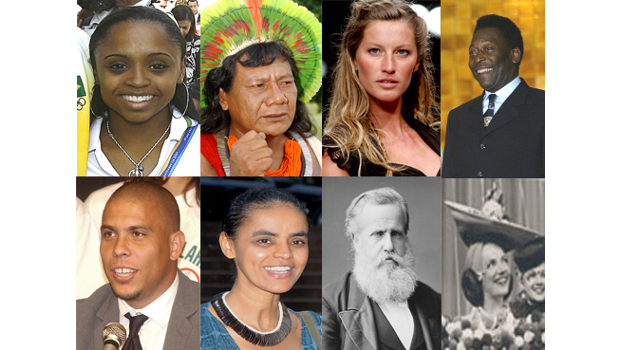“Whitening” and Whitewashing: Postcolonial Brazil is not an Egalitarian “Rainbow Nation” |
“Whitening” and Whitewashing: Postcolonial Brazil is not an Egalitarian “Rainbow Nation”
The Postcolonialist
2014-03-04
To commemorate the 500th anniversary of its “discovery” by Portuguese sailor Alvares de Cabral in 2000, Brazil officially presented itself as a “rainbow nation” without discrimination or racism; a place where people from various ethnicities live peacefully together. That the “discovery” caused slavery and death for millions of Indigenes and Africans was overlooked. The Portuguese colonization was seen as a “non-imperial act, an exercise of fraternity and intercultural and interethnic democracy”, says Portuguese sociologist Boaventura de Sousa Santos.[1]
The German author Stefan Zweig, who fled to Brazil from Nazi Germany, already considered Brazil a paradise characterized by hybridity and said in 1941 that Brazil “has taken the racial problem, that unsettles our European world ad absurdum in the simplest manner: in plainly ignoring its validity.” (translation S.L.)[2] According to Zweig, “for hundreds of years the Brazilian nation relies on the sole principle of free and unrestrained mixing, perfect equality of black and white, brown and yellow. (…) There are no limits to colours, no boundaries, no supercilious hierarchies…”[3]
Hence the image of Brazil as a tolerant, peaceful, “mestiço” nation is not at all new. But it ignores then and still today the multifaceted forms of discrimination and specifically Brazilian shapes of racism…
Read the entire article here.
Tags: Sarah Lempp, The Postcolonialist